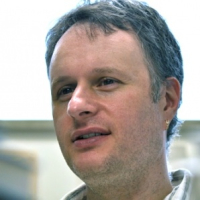The public opposition to the possible nomination of Chuck Hagel as Secretary of Defense has been dominated by Jewish individuals and groups already partisan when it comes to Barack Obama or long hostile to his Israel policy. This, in turn, has raised a number of questions over what exactly is meant by “pro-Israel Jewish leadership.”
The Daily Beast, BuzzFeed, The New York Times, and the Forward have written on the debate, but they’ve all said the same thing: that the pro-Israel Jewish community opposes Hagel. Yet they all relied on the same people and quotes, primarily from the right or far-right end of the political spectrum. It’s not unexpected that these individuals and groups would oppose Obama’s choices. But what makes this an issue of concern and puzzlement is that in the popular mind these groups have become representative of the pro-Israel Jewish community—when in reality it’s not at all clear this is the case.

The veneer of representation is maintained by referencing (the same) Democrats concerned about Hagel, particularly former Democratic operative Josh Block and a quote from Ira Forman, former executive director of the National Jewish Democratic Council; by noting Anti-Defamation League’s Abe Foxman’s email to conservative blogger Jennifer Rubin implying Hagel traffics in anti-Semitic tropes; and by suggesting—given its past positions—that AIPAC would be opposed to Hagel’s ideas.
Yet Block has long opposed Obama’s policy toward Israel, and been very critical of Democratic ideas about the Middle East. Forman’s quote is from 2009, and he hasn’t said anything on the matter since the potential nomination became public. Foxman in another interview (not mentioned in all these stories) seemed more positive about Hagel’s position and implied he wouldn’t oppose his nomination. And AIPAC hasn’t taken a position on the nomination. (Some have noted the left-wing J Street’s position, which supports Hagel.)
As in any policy area, when the bulk of the population and their representative organizations are silent, those groups and individuals who are most vocal “capture” the field and dominate the conversation. But the media has exacerbated the pattern in this case, by citing these groups and individuals and referring to them explicitly or implicitly as Jewish leadership, giving the impression that the Jewish community as a whole doesn’t support Hagel because they believe he’s unfriendly to Israel.
It’s not all the media’s fault: the large centrist pro-Israel Jewish organizations have largely been silent, including AIPAC and the Jewish Council for Public Affairs. Today the American Jewish Committee’s David Harris emailed a non-committal statement to Jennifer Rubin, claiming similarly to Foxman that Hagel is a concern. It’s not clear if Rubin is being used as an outlet for less formal opposition, or if this will be the first step to an official position.
The irony is that media in Israel have been more careful: Ynet noted that Hagel has sparked criticism among “pro-Israel conservatives.” Ha’aretz said “certain circles” were upset with him, and the Times of Israel referred to “Jewish hawks.” But even they have only been able to quote the same individuals and groups.
There’s no evidence that the Jewish community as a whole either supports these so-called leaders, is unified on the nomination, or even is aware of the intricacies of the issue. Indeed, the community itself is fragmented, and it’s sometimes difficult to even determine which groups fall within the mainstream, or how many Jews they can legitimately claim to represent. It’s not even clear most Jews would know who the main individuals and groups commenting on the matter are. It’s unlikely most have heard of Josh Block, for example; yet he’s been consistently cited as an example of how the community feels.
From its beginnings in the colonies, Jews have sought to construct community institutions, particularly places of worship, burial societies, and mutual aid groups. Some of this stemmed from the experience in Europe, where they had to be self-governing in the face of a broader antagonistic national community. The need to maintain religious rituals and norms in the new lands contributed to institutional separation.
On this foundation there was long a sense of communal consensus, though never complete agreement. It was captured by the largest national community institutions, including AIPAC, umbrella institutions tying local Federations together, and organizations like the ADL and AJC formed to look after Jewish interests and safety. But in recent years that’s broken down as smaller groups have formed to promote specific partisan, ideological, and political priorities.
It’s not clear anymore, then, that any group—let alone any individual—can claim to represent the pro-Israel Jewish community. “Leadership” is also probably less applicable, since most of the main institutions have been losing their direct connections to the people, alongside a drop in financial support. Where that broad-based funding has declined, wealthy individuals have filled the gap.
Yet their preference is for smaller organizations that share all of their interests, or for more direct influence in the big organizations’ policymaking. This, in turn, makes the smaller groups less representative of the broader community and the big groups less democratic in terms of representation.
There is certainly an important debate to be had about U.S. interests in and policy toward the Middle East. And groups have the right to present their case to the public. And it’s obvious that there’s a range of Jewish opinions out there on U.S. policy toward Israel or the Hagel nomination specifically. But it’s difficult for any group to claim “leadership” anymore of anything but a small segment of Jewish society, or one end of the ideological/political spectrum. We should be careful about making any claims to that effect.






